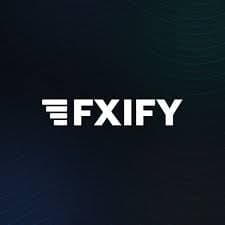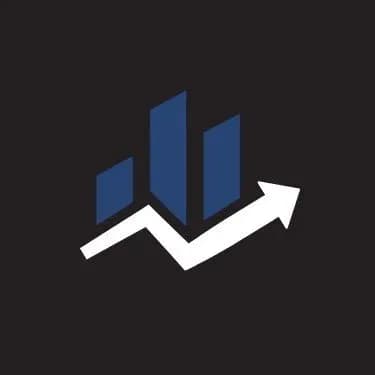Is Forex Trading Legal in India? | The Trusted Prop Guide 2025
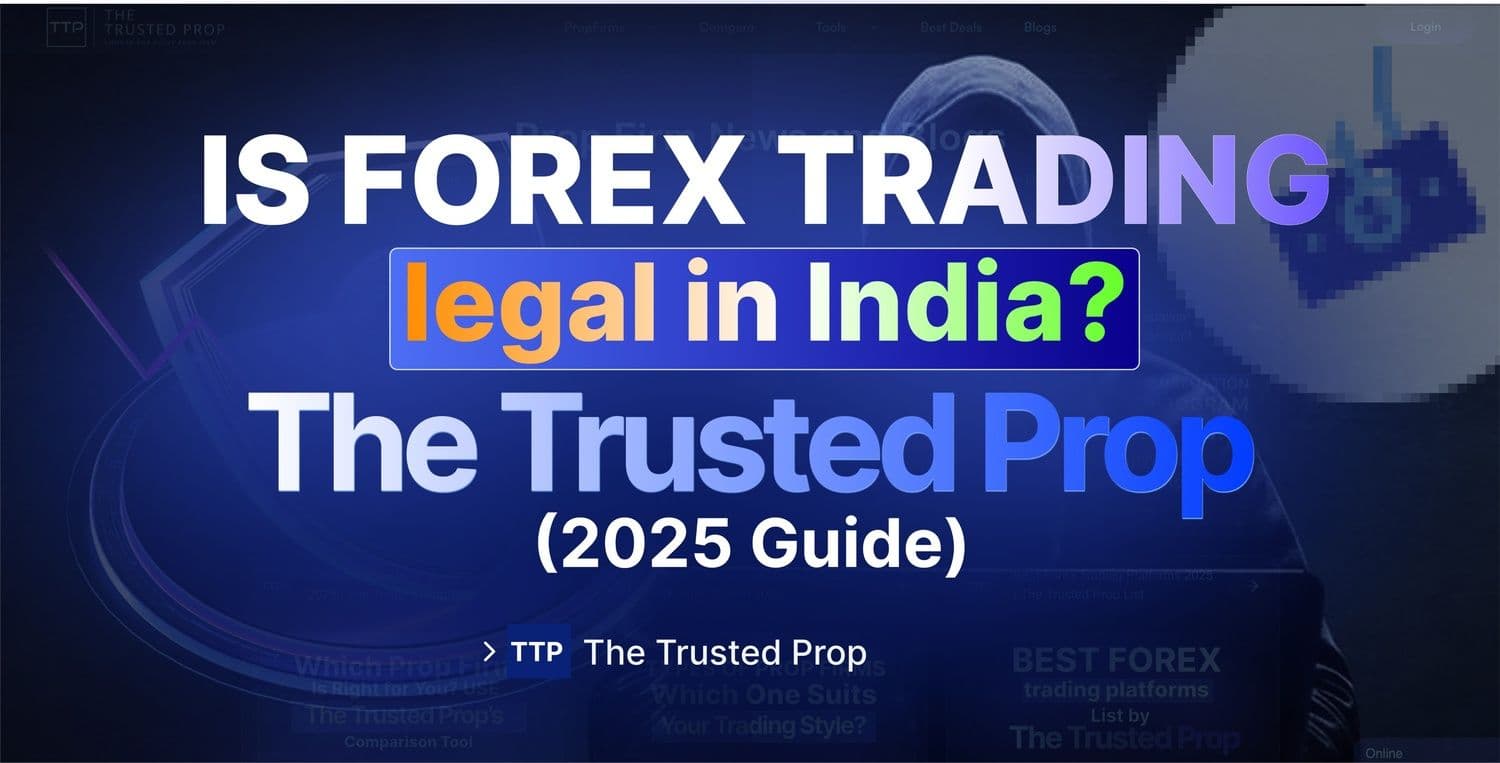
Is Forex Trading Legal in India? | The Trusted Prop Guide 2025
6/8/2025
If you're in India and have been curious about the legality of forex trading, you're not alone. With the explosive growth of prop firms, funded trading accounts, and international trading platforms, many traders are eager to explore global currency markets, but remain unclear about what's legal and what’s not.
Here’s the truth: the answer isn’t black and white. But don’t worry.
By the end of this guide, you’ll have a clear understanding of :
- What is forex trading?
- What’s legal (and illegal) under FEMA forex rules
- Why are some platforms banned?
- How prop trading firms offer a legal path for Indian forex traders
But before we dive into rules, risks, and regulatory frameworks, let’s start with the basic first.
What Is Forex Trading? Everything Beginners Should Know
Forex trading (also known as currency trading or foreign exchange trading) is the global act of buying one currency and selling another. It is a massive ecosystem, with more than $7.5 trillion traded daily.
Both individual and institutional traders speculate on how currencies will move against each other how to earn a profit.
In recent years, Indian traders have shown increased interest in funded forex due to its 24/5 global access, high liquidity, and growing exposure to prop firms offering funded accounts.
So, How Does Forex Trading Work?
At the heart of forex trading is the concept of currency pairs.
Since currencies are always priced relative to one another, you never buy or sell just one currency in isolation you’re trading one currency against another.
What Is a Currency Pair?
A currency pair consists of two currencies:
- The base currency (listed first)
- The quote currency (listed second)
For example, in the pair EUR/USD:
- EUR (euro) is the base currency
- USD (U.S. dollar) is the quote currency
If the pair is quoted as 1.1000, that means 1 euro = 1.10 U.S. dollars.
- When you buy EUR/USD, you are buying euros and selling dollars.
- When you sell EUR/USD, you are selling euros and buying dollars.
Examples of Popular Currency Pairs
- EUR/USD - Euro vs U.S. Dollar
- USD/INR - U.S. Dollar vs Indian Rupee
- GBP/JPY - British Pound vs Japanese Yen
- USD/JPY - U.S. Dollar vs Japanese Yen
- AUD/USD - Australian Dollar vs U.S. Dollar
The Goal: Profit from Price Movements
In forex, your job is to predict the direction a currency pair will move.
Let’s say you think the U.S. dollar will get stronger against the Indian rupee.
You’d buy the USD/INR pair. If it goes up, you profit.
- You buy USD/INR at 83.50
- A few hours later, it moves to 84.00
- That’s a 50 paisa move in your favor
If you bought 1 lot (typically 1,000 units), you could profit ₹500 or more, depending on the broker and leverage.
Now, if your prediction was wrong and the pair dropped instead, you’d take a loss.
How Do You Know When to Buy or Sell?
Traders use a combination of:
- Technical analysis (charts, patterns, indicators)
- Fundamental analysis (interest rates, inflation, news events)
- Price action and sentiment to make informed decisions
It’s not gambling it’s strategic speculation. And the more knowledge, tools, and discipline you apply, the better your odds of success.
Bonus Tip for Indian Traders
Because of India’s regulatory environment, only INR-based pairs like USD/INR, EUR/INR, GBP/INR, and JPY/INR can be legally traded through SEBI-regulated brokers. If you want access to broader markets like EUR/USD or GBP/JPY, your legal workaround is prop trading, where you're trading a firm’s capital, not your own.
Why Is Forex So Popular Among Indian Traders?
In recent years, India has seen a major spike in forex interest due to:
- 24/5 market access, across New York, London, Tokyo & Sydney
- High liquidity, making it easy to enter/exit trades
- Low capital requirements compared to stock trading
- The emergence of prop trading firms, offering funded accounts to skilled traders
With more exposure and education, many Indian traders are shifting from traditional stocks to currency markets, seeking greater flexibility and larger global opportunities.
Forex Trading Laws in India (2025): What’s Legal, What’s Not
Before you jump into trading global currencies, it is important to understand how Indian law views forex trading, because not everything is allowed, and the result of non-compliance can be serious.
In India forex trading is legal, but with specific rules.
The Governing Framework: FEMA
All foreign exchange transactions in India are regulated under the Foreign Exchange Management Act (FEMA), which is enforced by the Reserve Bank of India (RBI). Along with SEBI, these authorities determine what kinds of forex activity are permitted and which platforms are allowed.
Here is the breakdown:
What is Legal in Forex Trading?
You can trade forex currency pairs where INR is the base currency, such as:
- USD/INR
- EUR/INR
- GBP/INR
- JPY/INR
You must trade forex through SEBI-authorized brokers and Indian exchanges like:
- National Stock Exchange (NSE)
- Bombay Stock Exchange (BSE)
- Metropolitan Stock Exchange (MSE)
These trades are regulated, taxed, and considered legitimate under Indian financial law.
What is Not Legal Forex Trading?
- Trading on international forex platforms that offer cross-currency pairs like EUR/USD or GBP/JPY
- Participating in binary options trading
- Using offshore brokers that are not registered with SEBI
- Leverage or margin trading through foreign apps or websites
These actions are prohibited under FEMA, and the RBI has frequently issued public warnings about them.
Legal Ways to Trade Currencies in India
Yes, there are legal ways to trade currencies in India:
- Use Indian exchanges like NSE and BSE
- Stick to INR-based pairs only
- Go through SEBI-approved brokers like Zerodha, Angel One, or ICICI Direct
- Follow proper KYC and margin protocols
You don’t need a DEMAT account, but you do need:
- A currency trading account
- Margin capital
- Risk management discipline
Why Some Forex Trading Platforms Are Banned In India
Forex trading companies like IC Markets, OctaFX, Exness, and many more have used advertisement on social networks to get more clients.
Also, traders often post videos on youtube talking about these forex trading platforms because of the quick execution, high leverage, multiple currency pairs offered, ease of use, etc. While it may look tempting for traders in India, it’s not only dangerous, but illegal too.
Let’s break down why most forex platforms are banned or restricted in India
They Offer Unauthorized Cross-Currency Pairs
In India, you're only allowed to trade currency pairs that include the Indian Rupee (INR).
However, many international brokers offer pairs like:
- EUR/USD
- GBP/JPY
- AUD/CAD
These don’t involve INR and fall outside the scope of what’s permitted under FEMA. Trading such pairs from India is considered illegal speculation.
They Aren’t Registered with SEBI
To operate legally in India, a forex broker must be registered with the Securities and Exchange Board of India (SEBI). Most foreign platforms do not hold this registration.
This means:
- No protection under Indian financial law
- No legal recourse in case of scams or fraud
- Your trading activity could violate FEMA regulations
Even if these brokers are legitimate globally, they are not authorized to service Indian clients.
They Encourage High-Leverage & Binary Trading
Many offshore platforms offer leverage ratios as high as 1:1000 or more, and some promote binary options a form of gambling disguised as trading.
These products are:
- Extremely risky for inexperienced traders
- Banned by Indian authorities
- Known to be linked to high loss rates and scams
In fact, the RBI and SEBI have issued repeated warnings against using such platforms.
Fund Transfers May Get Blocked
When you deposit money into these platforms using credit cards, UPI apps, or e-wallets, it often goes through international payment gateways. These transactions can be flagged or blocked by banks if detected as forex-related.
In some cases:
- Bank accounts have been frozen
- Refunds are denied
- Traders lose access to their funds altogether
Countries That Have Banned Or Placed Restrictions On Forex Trading
Forex trading has not been accepted everywhere.
It is illegal or quite limited in certain countries due to their economical policies, regulations, or even religious beliefs.
Here’s is list some of the countries where forex trading banned or restricted.
1. North Korea
Status: Total Ban
2. Malaysia
Status: Not legal for retail traders.
3. France
Status: Some forms are banned
4. Bosnia and Herzegovina
Status: Banned
5. Israel
Status: Heavily restricted
6. Pakistan
Status: Effectively banned through Sharia and regulatory policies
7. India
Status: Very limited
Even if you have the opportunity to profit from global forex trading, it is essential to understand the legal framework in your country first.
Check out The Trusted Prop’s complete guide on countries where forex trading is illegal.
Why Some Countries Do Not Allow Forex Trading To Take Place?
Forex trading is one of the most popular forms of trading around the globe and there are many countries that allow such a type of trading. But there are still some countries that still restrict or completely ban Forex trading.
These decisions are often made to safeguard the financial standing of the nation as well as the safety of its investors and other related matters.
These are the main reasons why certain countries have limitations or outright bans on forex trading:
Financial Safety of the Nation
Forex trading and capital flight are closely related in that both activities can lead to dramatic falls in a country’s value.
Scams
Forex trading has been associated with and undermined for many scams whereby unregulated brokers falsely attract individuals without proper documentation.
Lowered Capital
Unrestricted spending of funds leads to free spending over non-existent finances which can paralyze the countries economy.
Control
Forex trading can result in capital flight, causing currency devaluation.
Such countries are better off putting restrictions on forex trading for the good of the economy and safely shielding the citizens on not getting exploited.
Remember to look at your local regulations before getting into any kind of forex trade.
Real Talk: Why Do People Still Use Them?
The truth is many traders don't know the legal boundaries. Others take the risk for higher leverage, easier access, or broader currency pair options. But ignorance doesn’t protect you from consequences.
That’s why an increasing number of Indian traders are now switching to prop trading firms. These offer legal, skill-based alternatives without the compliance headaches.
Final thoughts
Forex trading possibilities in one of the biggest financial markets which excites many traders. However, residents of India must be well know with the legal aspects of FEMA and SEBI regulations.
Forex trading is legal in India but through SEBI forex brokers and recognized Indian exchanges traders can only deal in INR currency pairs.
Trading on foreign platforms involves serious risks such as:
- No coverage under the Indian financial jurisdiction
- No means to recover lost funds if scammed or defrauded
- Your trading habits could violate FEMA policies
Honest forex traders want to operate in India, avoid unregulated brokers and shortcuts.
Use SEBI-compliant platforms, or consider joining a prop firm that permits trading their capital under legal frameworks.
Are you set to trade forex correctly now?
- Check out leading prop trading firms for traders
- Start saving on challenge fees with exclusive prop firm discount codes.
- Keep updated on forex trading regulations in India.
Head over to The Trusted Prop and receive tips on forex platform, evaluations, and guides on trading with funds every week.
You may also like
The5ers Payout Rules, Profits & Withdrawals (2026 Guide)
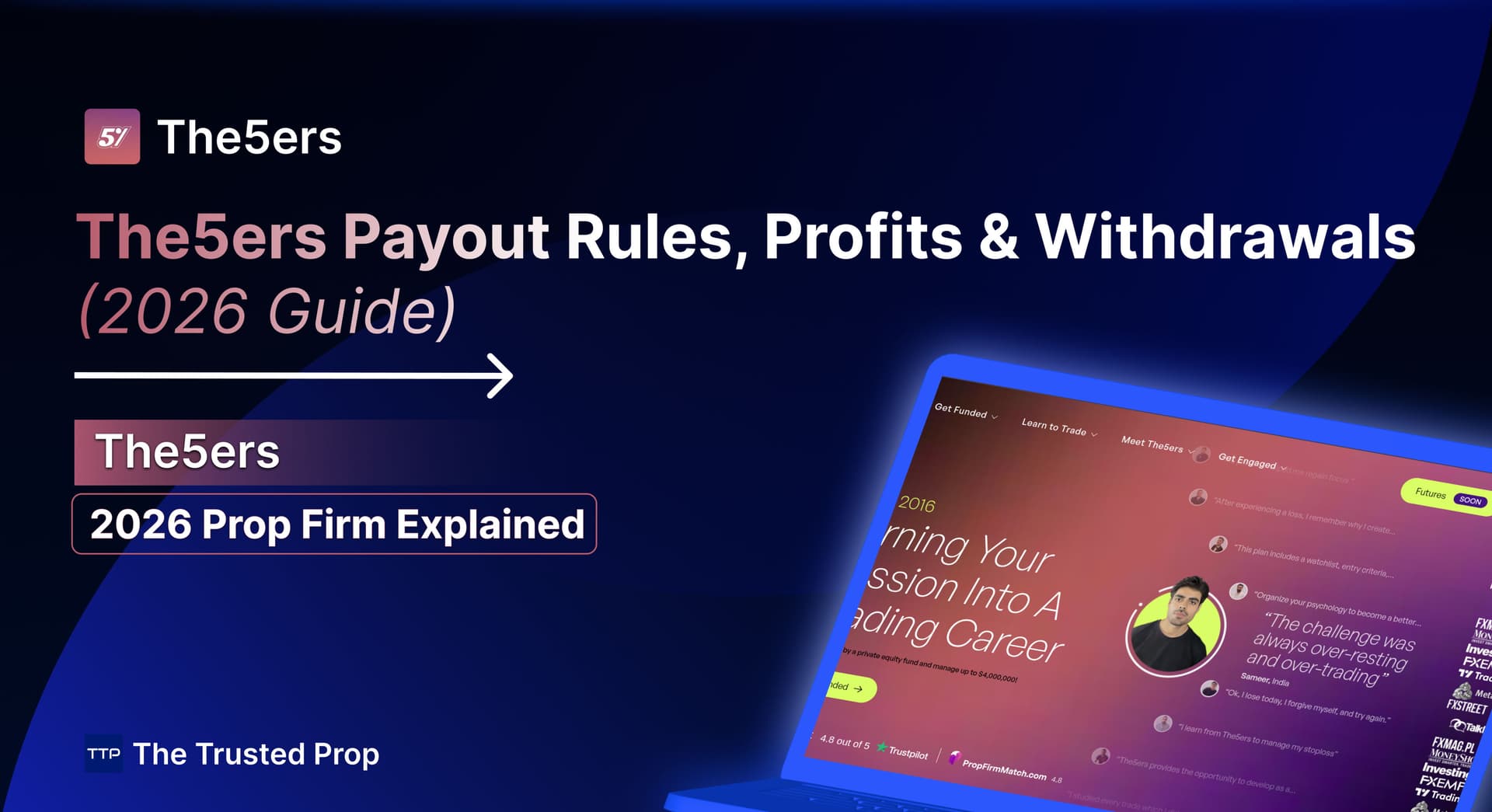
Goat Funded Trader Instant Goat Account Explained (2026)
.jpg&w=1920&q=75)
Goat Funded Futures Rules for Challenge and Funded Phase (2026)
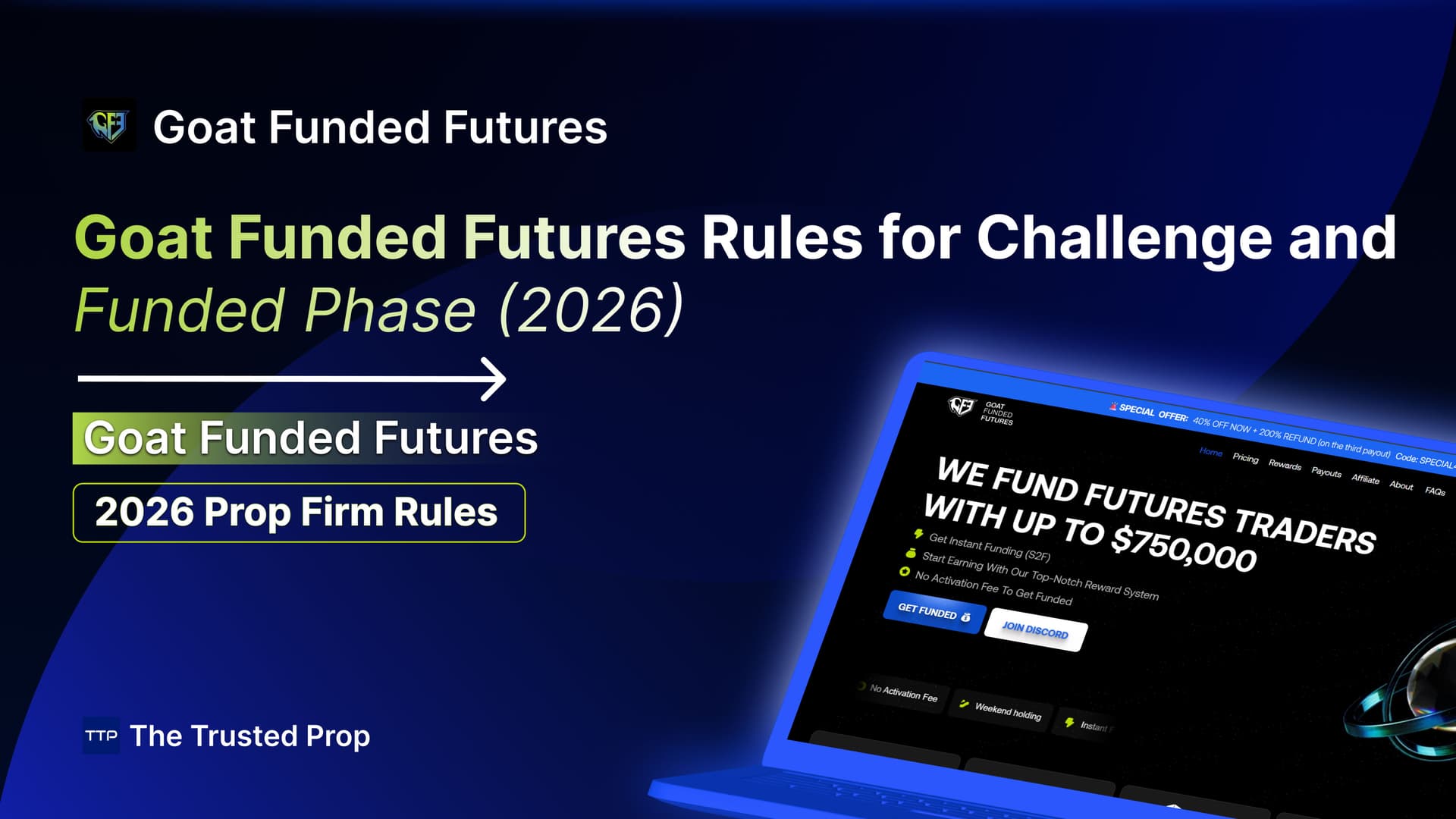
My Funded Futures Flex Challenge Explained (2026 Guide)
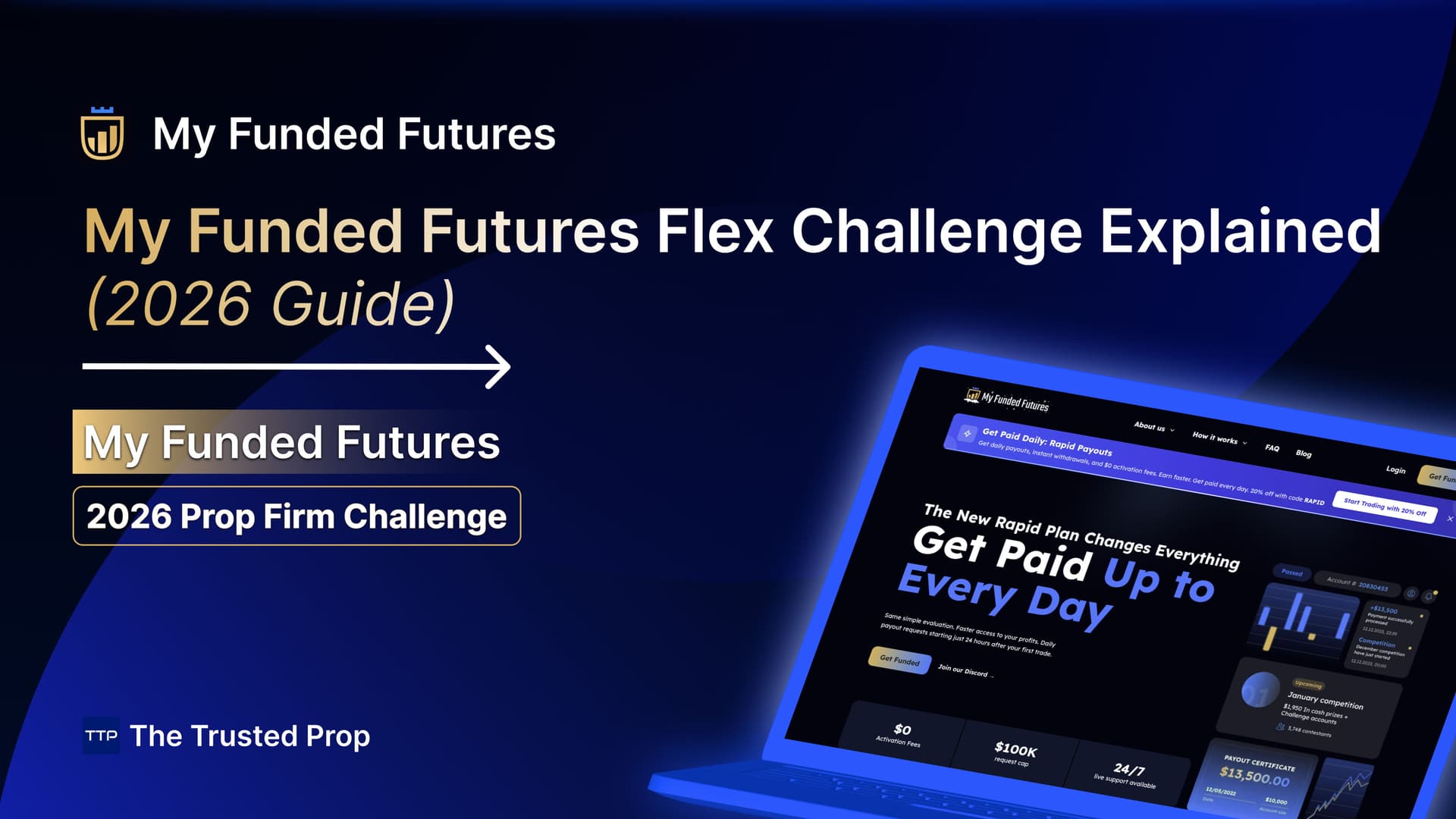
Moneta Funded Detailed Review 2026: Our Honest Verdict

Evercrest Funding Detailed Review 2026: Our Honest Verdict

Breakout Prop Detailed Review 2026: Our Honest Verdict
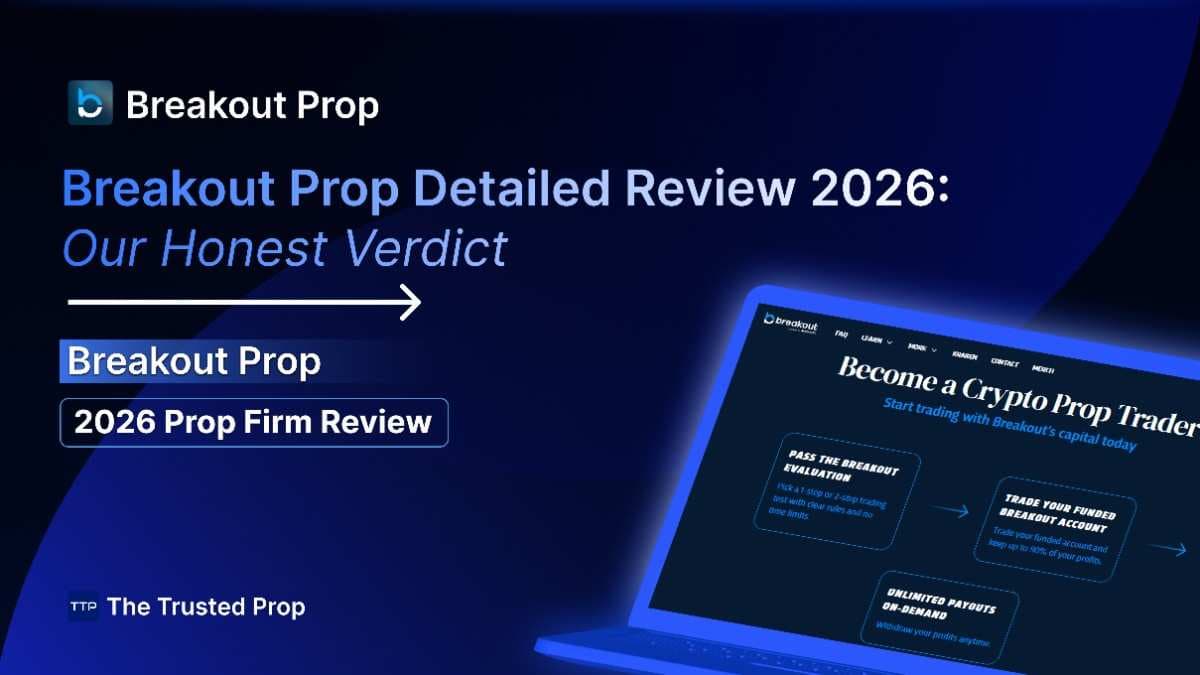
No FAQs are available for this topic yet.





